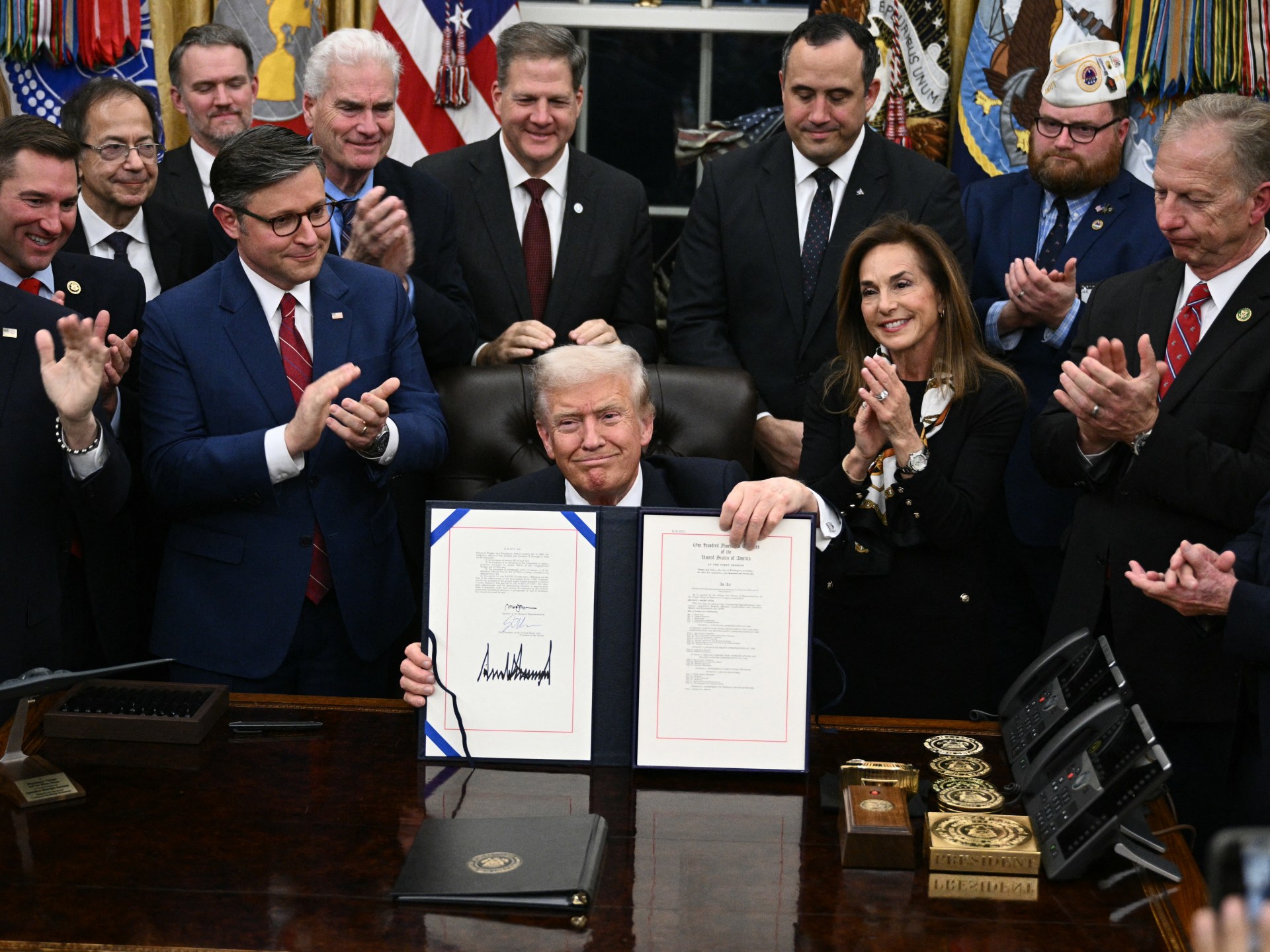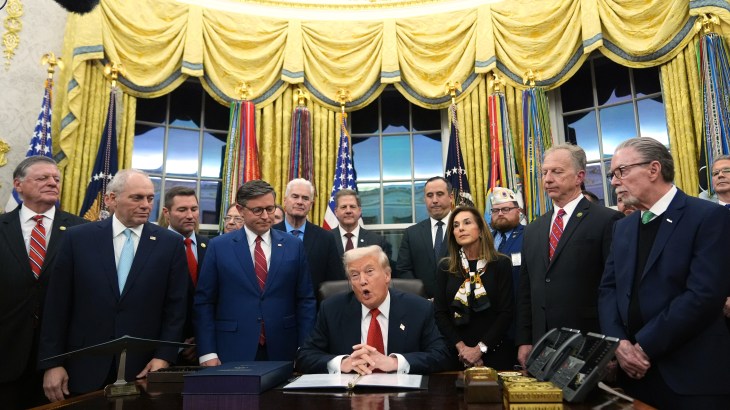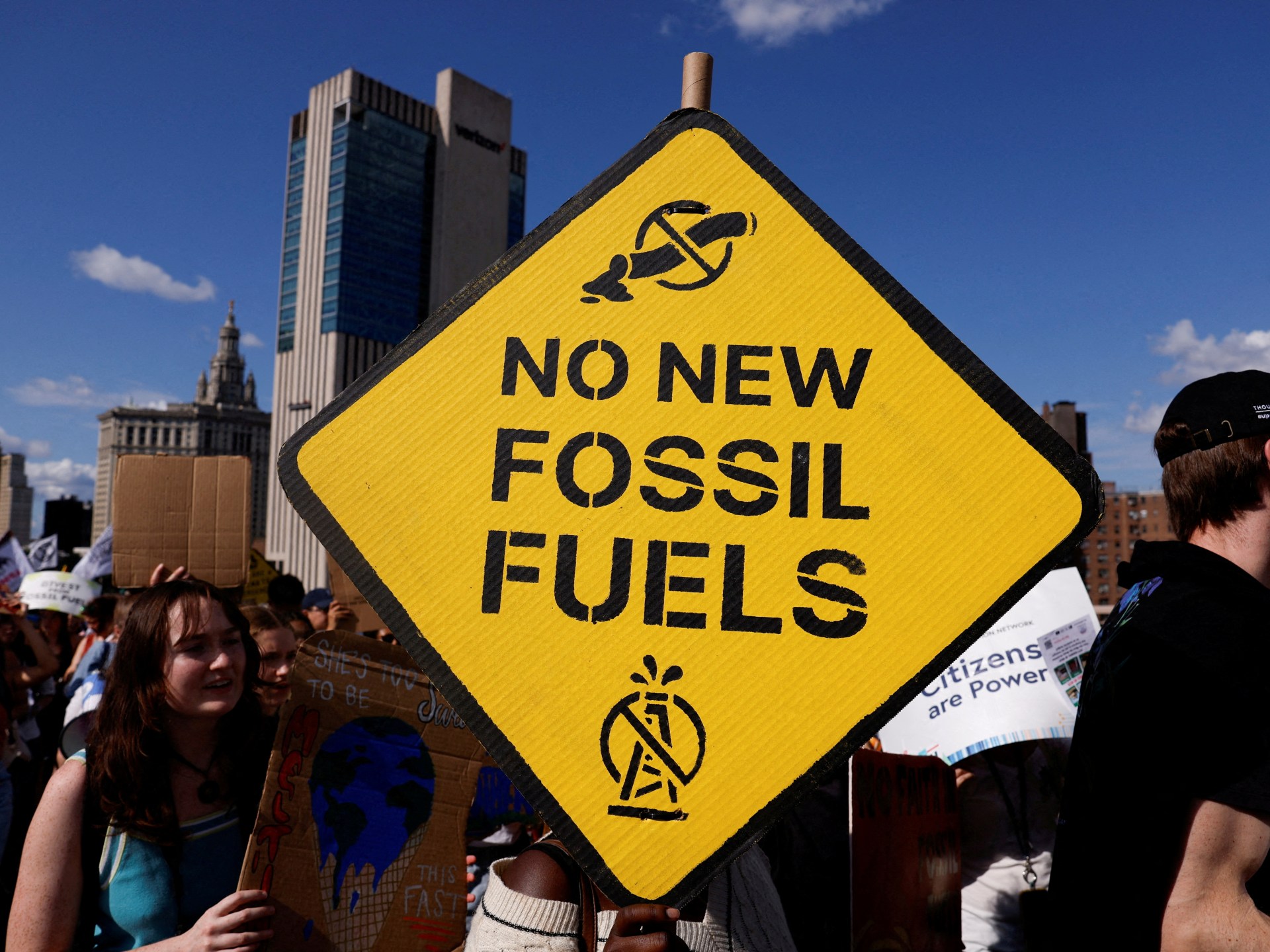United States President Donald Trump has signed a federal government spending bill less than two hours after the House of Representatives passed it, bringing an end to the longest government shutdown in US history.
“With my signature, the federal government will now resume normal operations, and my administration and our partners in Congress will continue our work to lower the cost of living, restore public safety, grow our economy and make America affordable again for all Americans again,” Trump said late on Wednesday.
Recommended Stories
list of 3 itemsend of list
All but essential government services had ground to a halt during the weeks-long shutdown, which began on October 1. Trump’s signature will now bring federal workers back to their jobs starting as early as Thursday.
Just how quickly it will be before full government services and operationsresume is unclear.
The shutdown’s end offers hope that services crucial to the country’s beleaguered air travel industry in particular will have time to recover before the Thanksgiving holiday travel wave, which is just two weeks away.
Restoration of food aid to millions of American families before Christmas may also make room in household budgets for increased spending during the festive season.
By some economists’ estimates, the shutdown was shaving more than a tenth of a percentage point from the US gross domestic product every six weeks. Most of that lost output is expected to be recouped in the months ahead.
During a late-night signing ceremony in which the Republican president lambasted Democrats for their role in prolonging the shutdown, Trump said “this is no way to run a country” and “we can never let this happen again.”
President Trump signs bill to OFFICIALLY reopen the government, ending the Democrat Shutdown.
Let’s get our country WORKING again. 🇺🇸 pic.twitter.com/QJqX90k9sC
— The White House (@WhiteHouse) November 13, 2025
Wednesday evening’s vote in the Republican-majority House saw 222 lawmakers, including six Democrats, back the bill while 209 voted against it, including two Republicans.
On Monday night, lawmakers in the Senate finally pushed through the spending package, funding the US government through January 30, by a vote of 60 to 40, paving the way for hundreds of thousands of federal workers to have their pay reinstated after six gruelling weeks.
The breakthrough came during negotiations last weekend that saw seven Democrats and one independent agree to back the updated spending package and end the shutdown, which entered its 43rd day on Wednesday.
Crucially, however, the deal has not resolved one of the shutdown’s most central issues – health insurance subsidies for 24 million Americans under the Affordable Care Act, which the Trump administration has said it will not renew when they expire at the end of the year.
For weeks, Democrats repeatedly blocked the bill’s passage in the Senate, saying the measure was necessary to force the government to address escalating healthcare costs for low-income Americans.
Shortly before Wednesday’s vote, Republican House Speaker Mike Johnson accused his Democratic colleagues of using American citizens as “leverage” in their “political game” as he denounced them for preventing the resolution’s passage in September.
“Since that time, Senate Democrats have voted 14 times to close the government. Republicans have voted a collective 15 times to open the government for the people, and the Democrats voted that many times to close it,” he said.
As part of the deal breaking the impasse, Senate Republicans agreed to hold a vote on the healthcare subsidies by December. Johnson, however, has made no such promise in the House, raising fears there could be another shutdown come January.
David Smith, an associate professor at the University of Sydney’s United States Studies Centre, described the agreement as “just a stopgap arrangement”.
“The deal that they’ve reached means most of the government will shut down again in January if they can’t come to another agreement,” he told Al Jazeera this week.
Senate Democrats who supported the deal were Senate Democratic Whip Dick Durbin from Illinois, John Fetterman from Pennsylvania, Catherine Cortez Masto and Jackie Rosen from Nevada, Maggie Hassan and Jeanne Shaheen from New Hampshire, and Tim Kaine from Virginia.
Senator Angus King, an independent from Maine, also backed the deal.
The agreement has provoked anger among Democrats, including Illinois Governor JB Pritzker, considered a contender for the 2028 presidential election, who called the deal an “empty promise”.
Many Democrats preferred to keep holding out, feeling they had sufficiently strengthened their position on health insurance subsidies after several high-profile election wins this month, including New York City’s mayoral race and gubernatorial votes in New Jersey and Virginia.










